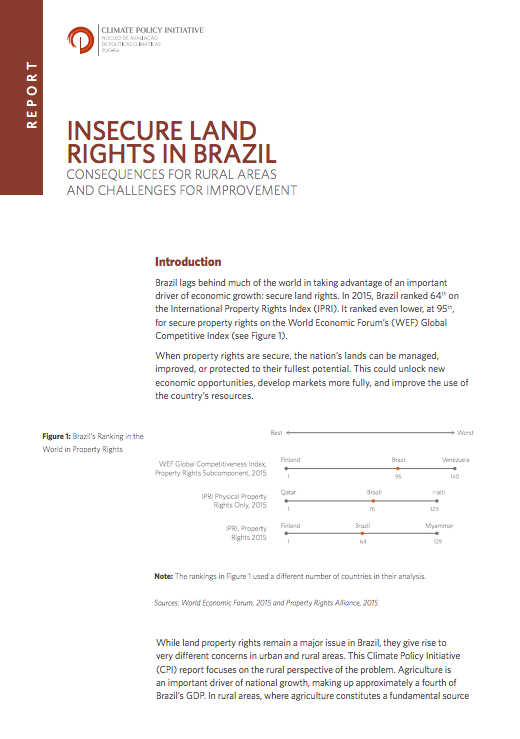Resource information
Brazil lags behind much of the world in taking advantage of an important driver of economic growth: secure land rights. In 2015, Brazil ranked 64th on the International Property Rights Index (IPRI). It ranked even lower, at 95th, for secure property rights on the World Economic Forum’s (WEF) Global Competitive Index.
When property rights are secure, the nation’s lands can be managed, improved, or protected to their fullest potential. This could unlock new economic opportunities, develop markets more fully, and improve the use of the country’s resources.
While land property rights remain a major issue in Brazil, they give rise to very different concerns in urban and rural areas.
This Climate Policy Initiative (CPI) report focuses on the rural perspective of the problem. Agriculture is an important driver of national growth, making up approximately a fourth of Brazil’s GDP. In rural areas, where agriculture constitutes a fundamental source of livelihood and food security for individuals, secure land rights are ever more important. The fulfillment of these rights would allow rural landholders to use, control and invest in their land and its resources and provide additional economic and societal benefits.
Secure land rights would create mechanisms through which policymakers can enhance incentives and accountability, helping Brazil to increase food production while ensuring environmental protection. They could also help reduce some of the country’s most entrenched problems in rural areas, such as land-related conflicts and violence, deforestation, and poorly functioning land rental markets.
This report draws off of extensive academic literature on the social and economic role of land rights from Bernardo Mueller’s paper, “Key Issues for Property Rights in Brazil: Implications for the Forest Code.” It also outlines the major land governance challenges Brazil now faces.

